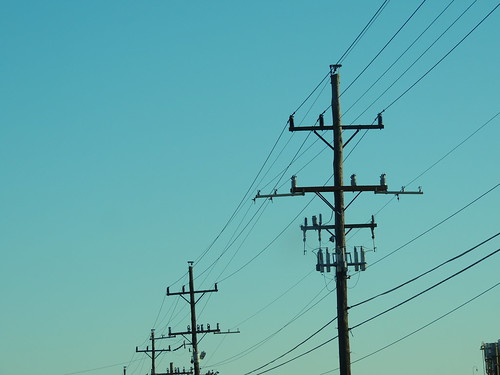Power outages at our homes can happen for a variety of reasons, such as severe storms or accidental damage to the lines. Since we rely so much on electricity to run our daily lives, we want to return to our regular activities as soon as possible when it’s restored. However, there are a few things everyone should do following an outage — for safety’s sake, and also to prevent additional problems.
Assess Damages
If your home loses power due to a storm, the first thing to do when it passes is to find out the extent of the damage. Report fallen power lines. Don’t enter a flooded basement or use electrical outlets or appliances that have been damaged by water. Check outside for fallen branches or trees. If your home is damaged, contact your insurance agent.
Restart or Reset Appliances
When electricity is restored, spikes in power level can occur which may damage electronics such as TVs, computers, and even kitchen appliances, especially if they contain microprocessors. For this reason, it’s best to unplug these items when the power goes out, even if they’re on surge protectors. For even more protection, turn off the entire circuit breaker.
Restart the HVAC System
Your HVAC system may also require your attention when the power comes back on since some models won’t turn back on automatically. There may be a reset button or a combination of steps that must be followed. If you’re not sure what is needed, or if it won’t start up after you’ve followed the instructions, you may need to call an HVAC repair professional.
Make Sure Your Water Is Safe
Depending on the extent of the storm damage, water treatment facilities may not be operational. Even if the water from your tap looks and smells normal, you should still check to see if your area has a boil advisory. If in doubt, use bottled water.
Make Sure Your Food Is Safe
During a power outage, do not open the refrigerator or freezer unless absolutely necessary. An unopened refrigerator should keep food safe for about four hours, and a full freezer is safe for 48 hours. Keep a zip-top bag with an ice cube in your freezer. If it has melted, your food may no longer be safe to eat.
Plan for Future Power Outages
Once you’ve experienced a power outage, you know how difficult it can be to cope and recover afterward. Therefore, it’s wise to plan for the future — bearing in mind that the outage may be even longer. Some tips:
- Pack an emergency kit containing first-aid supplies, non-perishable food, bottled water, flashlights and batteries, and other useful items your family may need to stay comfortable.
- Consider investing in a generator. Models range from small ones to operate lights and a refrigerator to whole-house generators which can power anything you need.
- Make an evacuation plan, in case it’s not safe to remain at home.
No matter how long your home goes without power, following these safety guidelines can protect your property, help your family stay safe, and reduce the amount of time needed to return to normal life. As they say, an ounce of prevention!

